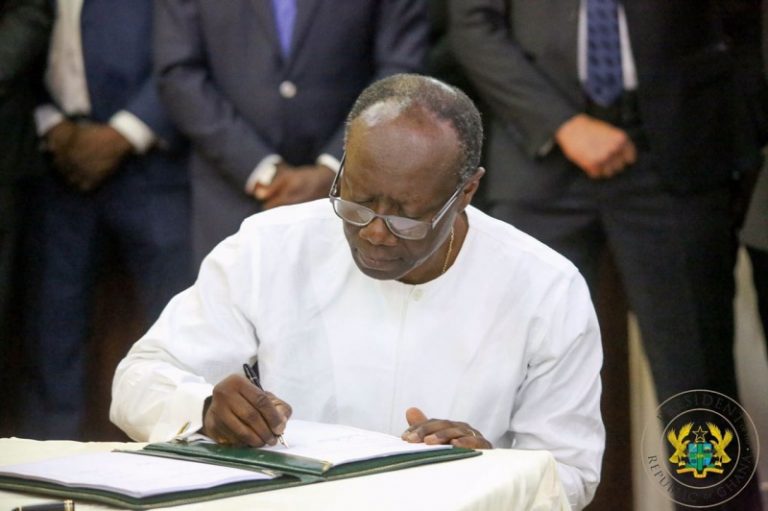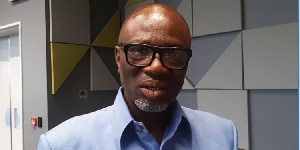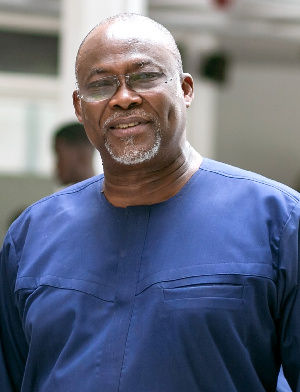Ghana scores high on ‘Open Budget Survey’

Ghana has scored 54 in the global ‘2019 Open Budget Survey,’ the world’s only independent, comparative and fact-based research.
The research uses internationally accepted criteria to assess public access to central government budget information, formal public participation in national budget processes and oversight institutions.
The survey said though budget transparency level remained low with average score of 45, globally, Ghana’s score improved from 50 in the last round of survey in 2017 to the current score in 2019, ranking 54th out of the 117 countries sampled.
This was contained in a release signed by Mr George Osei-Akoto Bimpeh, Country Director of SEND Ghana, a Civil Society think-tank in budget Advocacy that undertook the survey with support from the International Budget Partnership (IBP).
The score makes Ghana relatively higher on the Budget transparency score in comparison to six other West African countries, Sierra Leone-39, Liberia-38, Sao Tome and Principe-24, Nigeria 21, Equatorial Guinea-5 and the Gambia-4.
Ghana’s increased score was due to availability of its budget ‘In-Year Reports’ documents published particularly online and in timely fashion.
The report, however, calls for improvement in government’s prioritisation and publication of pre-budget statements online and timeously too.
It said the country performed abysmally low on public participation scoring 15 out of 100 and dipped by two percent when it scored 17 out of 100 in 2017.
Ghana’s score also fell below two percent of its West African counterparts, Nigeria-22 and Sierra Leone-31, albeit slightly higher than the global average score of 14.
The survey largely attributed Ghana’s low public participation performance to inadequate space for citizens participation at the various stages of the budget process showing limited (41/100) number of citizens had the opportunity to participate in the formulation stages, only (0-4-/100) participated in approval, implementation and audit.
The report recommended that the Ministry of Finance piloted mechanisms to monitor budget implementation and actively engaged the vulnerable and the under-represented communities directly or indirectly through Civil Society Organisations (CSOs).
It again suggested that Parliament and the Audit Service allowed the public or CSOs to testify during its hearings of budget proposal prior to approval and audit report hearings.
The report scored the legislature and audit institutions for providing limited oversight score of 50 out of 100 with specifically scoring the legislature 40 per cent and audit 61 per cent.
It said the Executive’s Budget Proposal (EBP) should be submitted to legislators at least two months before shut of budget year and insisted Legislative Committees examined the EBP, In-Year-Budget implementation and Audit Reports and publish reports findings online with analysis.
It suggested Audit Service be given legislative or judicial approval to appoint head of supreme audit institutions and ensure audit processes were reviewed by an independent agency.
Meanwhile SEND Ghana said it piloted a ‘Health Sector Module’ analysis as part of the 2019 OBS with the sector scoring 50, which presupposed that information was limited on health sector-specific budget.
It noted that actual spending by sub-programme or activity was not provided and sub-national budget documents were absent on central government websites.
The findings provided the opportunity for major actors to strengthen health sector budgets and called on government to ensure greater transparency and accountability in the management of COVID-19 funds.
It is optimistic government and stakeholders would consider the recommendations enumerated to improve budget processes and financial management systems.
Globally, the 2019 OBS points to weak transparency and oversight of governments spending.
It revealed four out of five of the 117 governments assessed failed to reach the minimum threshold for adequate budget transparency and oversight and fewer provided opportunities for the public to participate in shaping budget policies or monitoring.
Source: GNA





